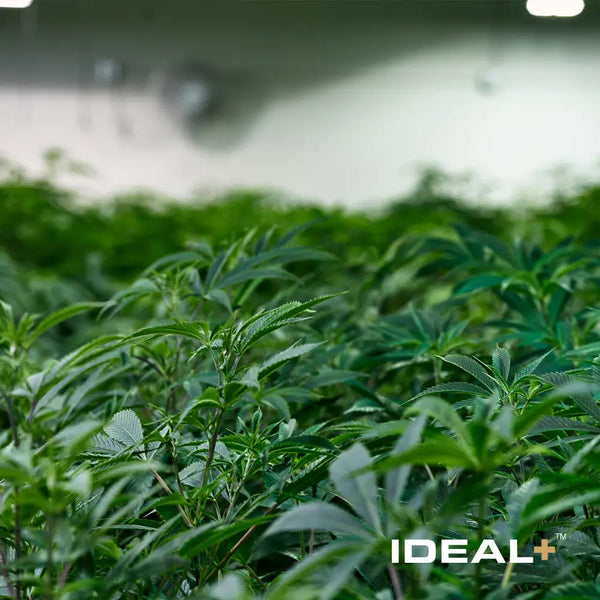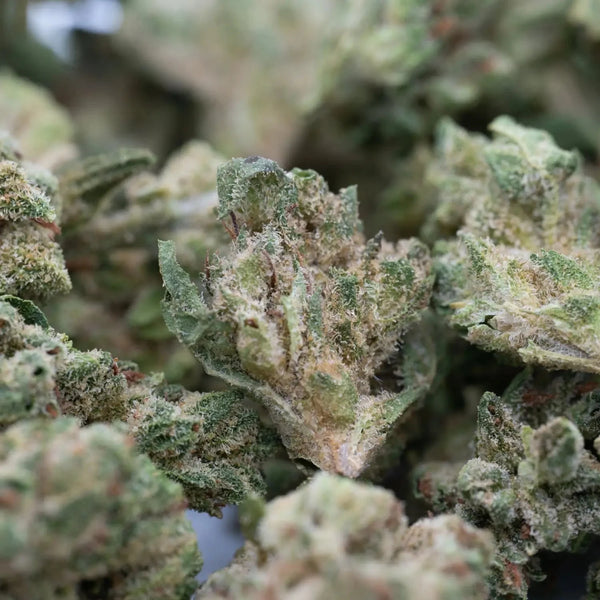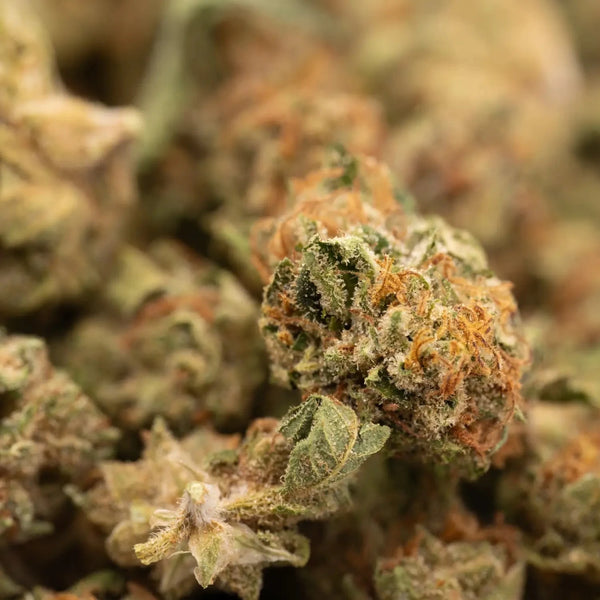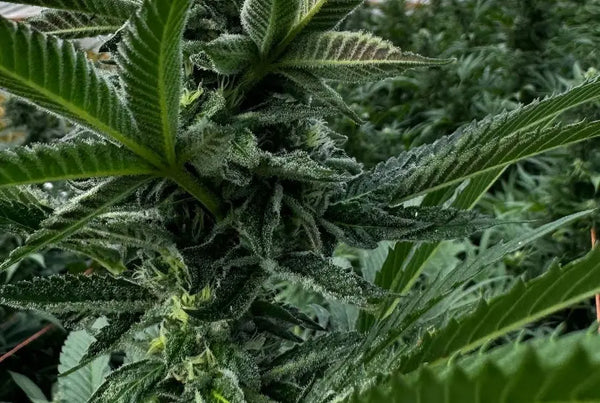No Products in the Cart
GET 25% OFF YOUR FIRST ORDER | GREENHOUSE THCA FLOWER 7g - $26.24 $34.99

Understanding federal THCa hemp laws has become increasingly important as the hemp industry continues to evolve and expand. Whether you're a first-time consumer or an experienced user, navigating the complex regulatory landscape surrounding hemp-derived products requires careful attention to federal compliance requirements. Before buying THCa hemp flower legally, consumers must understand the fundamental legal framework that governs these products at the federal level.
The landscape of hemp legislation has transformed dramatically since the passage of the 2018 Farm Bill, creating new opportunities for consumers while establishing strict regulatory boundaries. This comprehensive guide will walk you through everything you need to know about federal hemp compliance, ensuring you can make informed decisions while staying within legal boundaries.
From understanding the technical requirements of the Farm Bill to navigating state-specific variations in hemp law, this article provides essential knowledge for anyone interested in hemp-derived products. We'll explore the specific considerations surrounding THCa hemp flower, documentation requirements, age restrictions, and consumer protection measures that shape the current regulatory environment.
The Agricultural Improvement Act of 2018, commonly known as the Farm Bill, fundamentally changed the legal status of hemp in the United States. This landmark legislation removed hemp from the Controlled Substances Act, provided it meets specific criteria, creating the legal framework that allows for the production, processing, and sale of hemp-derived products today.
The Farm Bill established several critical requirements that all hemp products must meet to maintain federal legal status. The most important provision requires that hemp and hemp-derived products contain no more than 0.3% Delta-9 THC on a dry weight basis. This threshold serves as the primary distinguishing factor between legal hemp and federally controlled marijuana.
Additionally, the legislation requires that all hemp be produced under a state or tribal regulatory program that has been approved by the USDA, or under the USDA's own federal program. This ensures that all hemp cultivation occurs within a regulated framework with proper oversight and testing protocols.
The Farm Bill also established requirements for testing, licensing, and record-keeping that create transparency throughout the supply chain. These provisions help ensure that consumers can access safe, compliant products while providing law enforcement with clear guidelines for distinguishing between legal hemp and controlled substances.
Under federal law, the distinction between hemp and marijuana is based solely on the concentration of Delta-9 THC. Hemp containing 0.3% or less Delta-9 THC is federally legal, while cannabis containing more than 0.3% Delta-9 THC is classified as marijuana and remains federally controlled.
This distinction is crucial for understanding THCa hemp regulations because THCa (tetrahydrocannabinolic acid) is not Delta-9 THC. THCa is the non-psychoactive precursor to THC found in raw cannabis plants. When heated through smoking, vaping, or cooking, THCa converts to Delta-9 THC through a process called decarboxylation.
The federal definition of hemp specifically references Delta-9 THC content, not total potential THC content, which means that hemp flower with high levels of THCa can still be federally compliant as long as the Delta-9 THC content remains at or below 0.3%.
Understanding the specific regulations surrounding THCa hemp flower is essential for consumers seeking to make legal THCa purchase decisions. THCa hemp flower operates within a unique regulatory space that requires careful attention to both federal requirements and testing protocols.
The federal hemp definition's focus on Delta-9 THC rather than total potential THC creates an important distinction for THCa hemp flower. Raw hemp flower naturally contains high levels of THCa, which only converts to psychoactive Delta-9 THC when exposed to heat. This means that THCa hemp flower can contain significantly higher levels of total cannabinoids while remaining federally compliant.
However, consumers must understand that while THCa hemp flower is federally legal, it will produce psychoactive effects when smoked, vaped, or cooked due to the decarboxylation process. This creates a complex regulatory situation where the product is legal in its raw form but becomes psychoactive when consumed in typical ways.
Federal regulations require that all hemp products undergo testing to verify compliance with the 0.3% Delta-9 THC limit. For THCa hemp flower, this testing must specifically measure Delta-9 THC content rather than total potential THC. Testing must be conducted by DEA-registered laboratories using approved methods to ensure accuracy and reliability.
The testing requirements also extend beyond THC content to include screening for contaminants such as pesticides, heavy metals, residual solvents, and microbials. These comprehensive testing protocols help ensure consumer safety and product quality across the hemp industry.
While hemp is federally legal, individual states maintain the authority to impose additional restrictions or prohibitions on hemp products. Some states have enacted laws that specifically address THCa hemp flower, while others have maintained broader restrictions on hemp-derived products.
Before purchasing THCa hemp flower, consumers should research their state's specific laws and regulations. Some states require additional licensing for retailers, impose age restrictions beyond federal requirements, or maintain restrictions on certain types of hemp products. Understanding these state-level variations is crucial for maintaining compliance across all applicable jurisdictions.
Proper documentation serves as the foundation of hemp compliance, providing transparency and accountability throughout the supply chain. Understanding what documentation to look for and how to verify its authenticity is essential for consumers making informed purchasing decisions.
A Certificate of Analysis represents the most important document for verifying hemp product compliance and quality. A proper COA must be issued by a third-party, ISO-certified laboratory and contain specific information about the product being tested. The COA should clearly display the Delta-9 THC content, confirming that it meets the federal requirement of 0.3% or less.
Beyond THC content, a comprehensive COA should include a full cannabinoid profile showing levels of CBD, CBG, CBN, THCa, and other cannabinoids present in the product. This information helps consumers understand the product's composition and potential effects.
The COA must also include testing results for contaminants including pesticides, heavy metals, residual solvents, and microbial contaminants. These tests ensure that the product is safe for consumption and free from harmful substances that could pose health risks.
Federal regulations require that COAs be batch-specific, meaning each batch of hemp products must undergo individual testing. This ensures that variations in cultivation, processing, or storage don't result in non-compliant products reaching consumers. Batch-specific testing also enables effective recalls and quality control measures when necessary.
Proper traceability documentation should allow consumers to track products from cultivation through processing to retail sale. This transparency helps ensure accountability throughout the supply chain and provides confidence in product quality and compliance.
Not all testing laboratories are created equal, and consumers should verify that COAs come from properly accredited facilities. Look for laboratories that are ISO/IEC 17025 accredited and registered with the DEA for hemp testing. These credentials ensure that the laboratory meets professional standards and uses validated testing methods.
Consumers can often verify laboratory credentials through state regulatory websites or by contacting the laboratory directly. Reputable laboratories should be transparent about their accreditation status and testing protocols.

The hemp industry operates under a complex licensing system designed to ensure that all products come from legal sources and maintain compliance throughout the supply chain. Understanding these licensing requirements helps consumers identify legitimate retailers and products.
All hemp cultivation must occur under proper licensing from either state regulatory programs or the USDA federal program. Hemp growers must undergo background checks, maintain detailed records, and submit to regular inspections and testing. These requirements ensure that hemp enters the supply chain from legitimate, regulated sources.
Licensed hemp growers must maintain strict compliance with cultivation requirements, including GPS coordinates of growing areas, seed source documentation, and harvest reporting. This comprehensive oversight helps prevent the diversion of hemp into illegal channels and ensures product authenticity.
Hemp processors and manufacturers must also maintain proper licensing and registration with appropriate regulatory authorities. These businesses must follow Good Manufacturing Practices (GMP), maintain detailed batch records, and implement quality control systems to ensure product safety and compliance.
Processing facilities must also implement security measures to prevent theft or diversion and maintain accurate inventory tracking systems. These requirements help ensure that hemp products maintain their legal status throughout the manufacturing process.
Hemp retailers must verify that their suppliers maintain proper licensing and that all products come with appropriate documentation. Retailers should maintain records of supplier licenses, product COAs, and batch tracking information to demonstrate compliance with federal requirements.
Many states impose additional licensing requirements on hemp retailers, including business licenses, sales tax permits, and specialized hemp retail licenses. Retailers must also comply with advertising restrictions and age verification requirements in many jurisdictions.
While federal law doesn't establish a specific minimum age for hemp purchases, various states and individual retailers have implemented age restrictions that consumers must understand and comply with.
The 2018 Farm Bill doesn't establish a federal minimum age for hemp purchases, leaving this decision to individual states and businesses. However, most retailers voluntarily implement age restrictions, typically requiring customers to be at least 18 or 21 years old to purchase hemp products.
The lack of federal age restrictions reflects hemp's legal status as an agricultural commodity rather than a controlled substance. However, the potential psychoactive effects of THCa hemp flower when heated have led many retailers to treat these products more conservatively.
Many states have implemented specific age restrictions for hemp purchases, with requirements ranging from 18 to 21 years old. Some states align their hemp age restrictions with tobacco laws, while others follow alcohol regulations. Consumers should research their state's specific requirements before attempting to purchase hemp products.
States may also impose additional restrictions on where hemp products can be sold, such as prohibiting sales near schools or requiring specialized retail licenses. These location-based restrictions can affect product availability and should be considered when planning purchases.
Most reputable hemp retailers require valid government-issued identification to verify customer age and maintain compliance with applicable age restrictions. This requirement applies to both in-person and online purchases, with online retailers using age verification services to confirm customer eligibility.
Consumers should be prepared to provide identification when purchasing hemp products and should be wary of retailers that don't implement proper age verification procedures. Lack of age verification may indicate poor compliance practices that could extend to other areas of regulatory compliance.
The federal legal status of compliant hemp products generally allows for interstate commerce and transportation, but specific requirements and state-level variations create important considerations for consumers.
Hemp products that meet federal compliance requirements can generally be transported across state lines, but must be accompanied by proper documentation including COAs and chain of custody records. Products must maintain their compliant status throughout transportation, with proper packaging and labeling to prevent confusion with marijuana.
Transportation must comply with Department of Transportation regulations, including proper vehicle licensing and driver qualifications. Commercial transportation companies must maintain awareness of hemp regulations and implement appropriate handling procedures.
Federal regulations require that hemp products be properly labeled with required disclaimers, ingredient lists, and contact information for the manufacturer or distributor. Labels must accurately represent the product contents and cannot make unauthorized health claims or medical statements.
Packaging must be designed to prevent contamination and maintain product integrity during transportation and storage. Child-resistant packaging may be required in some jurisdictions, particularly for products that could be confused with marijuana or that have psychoactive potential.
While hemp is federally legal, some states maintain restrictions that can affect interstate transportation. Consumers should research the laws in both their home state and any states they plan to travel through when transporting hemp products.
Some states require additional documentation or registration for hemp products, while others maintain complete prohibitions despite federal legality. Understanding these variations is crucial for avoiding legal complications during travel.

The federal legalization of hemp has significantly improved access to traditional banking and financial services for hemp businesses, though some challenges and considerations remain.
Unlike marijuana businesses, compliant hemp companies can access FDIC-insured banking services, business loans, and traditional financial products. This access has dramatically improved the stability and growth potential of the hemp industry while providing consumer protections through established financial institutions.
Hemp businesses must still demonstrate compliance with federal regulations to maintain banking relationships, requiring ongoing documentation and transparency about business operations. Banks may implement additional due diligence requirements for hemp businesses compared to other agricultural operations.
Most major credit card processors now accept hemp businesses that can demonstrate federal compliance, providing consumers with convenient payment options and purchase protections. This represents a significant improvement over cash-only operations that were common in the early days of hemp legalization.
However, payment processors may implement additional compliance requirements or hold funds for longer periods to ensure regulatory compliance. Consumers benefit from the fraud protection and dispute resolution services available through traditional payment methods.
Hemp businesses must comply with federal anti-money laundering (AML) regulations, including customer identification requirements and suspicious activity reporting. These requirements help prevent the hemp industry from being used for money laundering or other financial crimes.
For consumers, AML compliance means that purchases may be subject to additional verification requirements, particularly for large transactions. This regulatory oversight helps ensure the integrity of the hemp industry and provides additional consumer protections.
Federal hemp regulations include several consumer protection measures designed to ensure product safety, quality, and accurate representation. Understanding these protections helps consumers make informed decisions and identify reputable suppliers.
Hemp processors and manufacturers should follow Good Manufacturing Practices to ensure consistent product quality and safety. GMP requirements include facility cleanliness, equipment maintenance, employee training, and quality control procedures throughout the production process.
Consumers should look for products from manufacturers that follow GMP guidelines and can provide documentation of their quality control procedures. While GMP compliance isn't always legally required, it represents industry best practices for ensuring product safety and consistency.
Federal regulations require accurate labeling of hemp products, including truthful representation of cannabinoid content, ingredient lists, and manufacturer information. Labels cannot make unauthorized health claims or medical statements, and must include required disclaimers about FDA evaluation.
Consumers should carefully review product labels and compare them to COA results to verify accuracy. Significant discrepancies between labels and laboratory testing may indicate poor quality control or compliance issues.
Comprehensive testing for contaminants including pesticides, heavy metals, residual solvents, and microbials helps ensure that hemp products are safe for consumption. These testing requirements protect consumers from potentially harmful substances that could be present due to cultivation or processing practices.
Consumers should review COAs to verify that products have been tested for all relevant contaminants and that results meet safety standards. Products without comprehensive contamination testing should be avoided due to potential health risks.
For THCa hemp flower, accurate potency testing helps consumers understand the strength and potential effects of products. Reliable testing should measure both THCa content and Delta-9 THC content to provide a complete picture of the product's cannabinoid profile.
Consumers should look for products with recent, batch-specific testing that accurately represents the product they're purchasing. Outdated or generic testing results may not accurately reflect the actual product composition.
Identifying potential compliance issues or fraudulent operators helps consumers avoid legal problems and ensure they're purchasing safe, legitimate products. Several warning signs can indicate problems with hemp retailers or products.
Purchasing from unlicensed retailers or suppliers significantly increases the risk of receiving non-compliant or unsafe products. Consumers should verify that retailers maintain appropriate licenses and can provide documentation of their supplier relationships.
Unlicensed operators may not follow proper testing, storage, or handling procedures, potentially resulting in contaminated or mislabeled products. The lack of regulatory oversight also means limited recourse for consumers if problems arise.
Products without proper Certificates of Analysis should be avoided entirely, as there's no way to verify compliance or safety without laboratory testing results. COAs should be recent, batch-specific, and from accredited laboratories.
Questionable COAs may include results that seem too perfect, laboratories that can't be verified, or testing that doesn't include required parameters. Consumers should be skeptical of COAs that don't include full contact information for the testing laboratory.
Federal regulations prohibit hemp products from making unauthorized health claims or medical statements. Products or retailers that claim hemp can cure, treat, or prevent specific medical conditions are violating federal regulations and should be avoided.
Legitimate hemp retailers focus on product quality, compliance, and general wellness rather than specific medical claims. Consumers seeking hemp for health purposes should consult with healthcare providers rather than relying on product marketing claims.
Products that contain more than 0.3% Delta-9 THC are not legally hemp under federal law and could create legal problems for consumers. COAs should clearly show Delta-9 THC content at or below the federal limit.
Some products may attempt to circumvent regulations through misleading labeling or by focusing on total potential THC rather than actual Delta-9 THC content. Consumers should carefully review testing results to ensure products meet federal requirements.

Yes, THCa hemp flower that meets federal compliance requirements can be legally purchased online in most states. However, consumers should verify that the retailer is licensed, provides proper COAs, and that their state doesn't have additional restrictions on hemp products.
The only difference under federal law is the Delta-9 THC content. Hemp contains 0.3% or less Delta-9 THC, while marijuana contains more than 0.3% Delta-9 THC. This distinction is based on laboratory testing of the actual Delta-9 THC content, not potential THC from THCa conversion.
Generally yes, if the products meet federal compliance requirements and you have proper documentation. However, some states maintain additional restrictions or prohibitions that could affect transportation. Research the laws in all states you'll be traveling through.
Review the Certificate of Analysis to confirm that Delta-9 THC content is 0.3% or less. Verify that the COA is from an accredited laboratory and is batch-specific to the product you're purchasing. Also confirm that the retailer maintains proper licensing.
Stop using the product immediately and contact the retailer to report the issue. Document the problem with photos and retain all packaging and documentation. Consider reporting serious compliance issues to relevant regulatory authorities.
No, federal law doesn't establish a minimum age for hemp purchases. However, most states and retailers implement age restrictions, typically requiring customers to be 18 or 21 years old. Check your local laws and retailer policies.
Yes, compliant hemp businesses can access FDIC-insured banking, business loans, and credit card processing. This is a significant advantage over marijuana businesses, which still face banking restrictions due to federal prohibition.
Hemp products must be tested for Delta-9 THC content to verify compliance with the 0.3% limit. Additional testing for contaminants including pesticides, heavy metals, residual solvents, and microbials is recommended and required in many states.
Understanding federal hemp laws is essential for anyone interested in purchasing THCa hemp flower or other hemp-derived products. The 2018 Farm Bill created a clear legal framework that allows for the production, processing, and sale of compliant hemp products while maintaining important safety and quality standards.
The key to successful hemp purchases lies in understanding the distinction between hemp and marijuana, verifying product compliance through proper documentation, and working with licensed retailers who prioritize regulatory compliance. By following the guidelines outlined in this comprehensive guide, consumers can confidently navigate the hemp marketplace while staying within legal boundaries.
As the hemp industry continues to evolve, staying informed about regulatory changes and compliance requirements remains crucial. Federal hemp laws provide a solid foundation for a legitimate, regulated industry that serves consumers while maintaining appropriate oversight and safety standards.
Remember that while this guide provides comprehensive information about federal hemp laws, regulations can change, and individual circumstances may require specific legal advice. Always consult with qualified legal professionals for specific legal questions and stay updated on regulatory developments that may affect hemp products and their legal status.
The hemp industry's continued growth and acceptance depend on maintaining high standards of compliance and consumer protection. By supporting reputable retailers and demanding proper documentation and testing, consumers play an important role in ensuring the long-term success and legitimacy of the hemp marketplace.
Disclaimer: This article is for informational purposes only and does not constitute legal advice. Hemp laws vary by state and can change over time. Always consult with qualified legal professionals for specific legal questions and verify current regulations in your jurisdiction before purchasing hemp products.